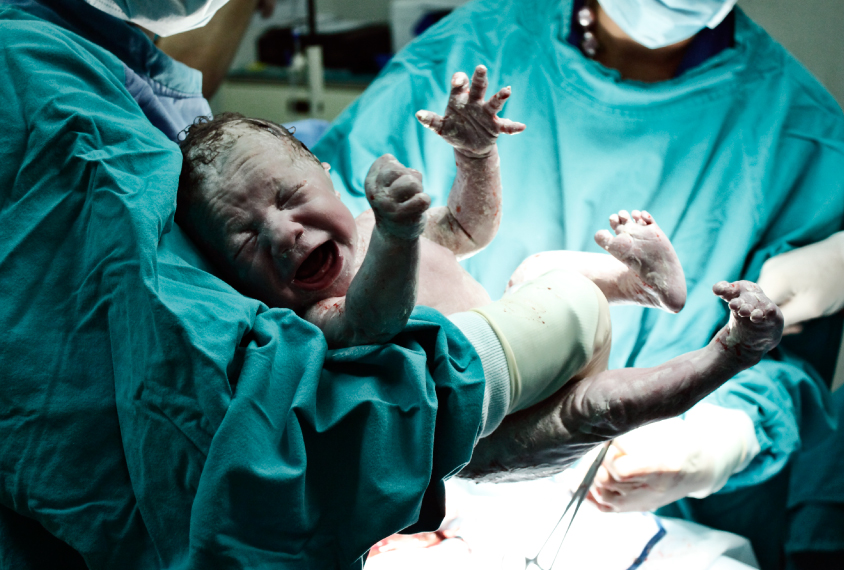
Exposure to feces in womb tied to autism risk
Babies who have their first bowel movement before birth have a slightly increased risk of autism, according to a study of nearly 10 million people.
Babies who have their first bowel movement before birth have a 16 percent increased risk of autism, according to a study of nearly 10 million people1.
The increase is extremely small, but the findings hint at a provocative sentinel for autism risk.
Infants typically produce their first feces, a tar-like substance called meconium, after birth. But up to 25 percent of babies born at term pass meconium in the womb, staining the amniotic fluid dark green. In about 5 percent of those cases, meconium enters the lungs and causes breathing problems — a condition called meconium aspiration syndrome — which can deprive the brain and body of oxygen.
“Any restriction of oxygen — for short or long periods of time, and even mild reductions — can damage areas of the brain and may have many consequences,” says lead investigator Cheryl Walker, associate professor of obstetrics and gynecology at the University of California, Davis. She says doctors should look for signs of autism in children exposed to meconium in the womb. The findings appeared in the November issue of the Journal of Perinatology.
Walker’s team examined hospital records for more than 9.9 million children born in California between 1991 and 2008 to find those who had either meconium in the amniotic fluid or meconium aspiration syndrome. They found that 47,277 of these individuals have autism, using records from the California Department of Developmental Services, which provides services for people with the condition.
The researchers adjusted for factors associated with either premature meconium release or autism, such as maternal obesity, high blood pressure during pregnancy, late delivery and insufficient oxygen in the womb.
Altogether, children who had meconium-stained amniotic fluid or meconium aspiration syndrome were 16 percent more likely to have a diagnosis of autism than those without this exposure.
The absolute risk of autism from meconium exposure is “incredibly small,” says Alan Brown, professor of psychiatry at Columbia University, who was not involved in the study. “There’s no reason for alarm,” he says.
Perinatal puzzle:
The researchers then looked at autism risk associated with each type of meconium exposure separately. They linked meconium-stained amniotic fluid to an 18 percent increase in autism risk. Meconium aspiration syndrome — the more serious of the two exposure types — results in only an 8 percent increase in risk and is not statistically significant.
It’s unclear why the more severe of the two exposures would result in a lower increase in risk.
Walker says babies with meconium aspiration syndrome typically receive an oxygen mask, intravenous fluids or other treatments that may decrease the potential for brain damage. If babies with meconium-stained amniotic fluid are also somewhat oxygen-deprived, they too may benefit from oxygen and fluids, she says.
Not everyone accepts this explanation, however. If insufficient oxygen during delivery is the culprit, then other factors that restrict oxygen at birth, such as congenital heart defects, should also increase autism risk, notes Tonya White, associate professor of pediatric neuroimaging at Erasmus University in Rotterdam, the Netherlands.
Still, White says the study is well done and controls for factors that could skew the results. The next step is to confirm the results in a different sample, she says, and study whether meconium exposure interacts with other factors to influence autism risk.
Walker plans to test newborns exposed to meconium to see whether they lacked oxygen at birth or show other abnormalities that might affect brain function.
References:
- Miller K.M. et al. J. Perinatol. Epub ahead of print (2016) PubMed
Recommended reading

New organoid atlas unveils four neurodevelopmental signatures

Glutamate receptors, mRNA transcripts and SYNGAP1; and more

Among brain changes studied in autism, spotlight shifts to subcortex
Explore more from The Transmitter
Can neuroscientists decode memories solely from a map of synaptic connections?

AI-assisted coding: 10 simple rules to maintain scientific rigor
